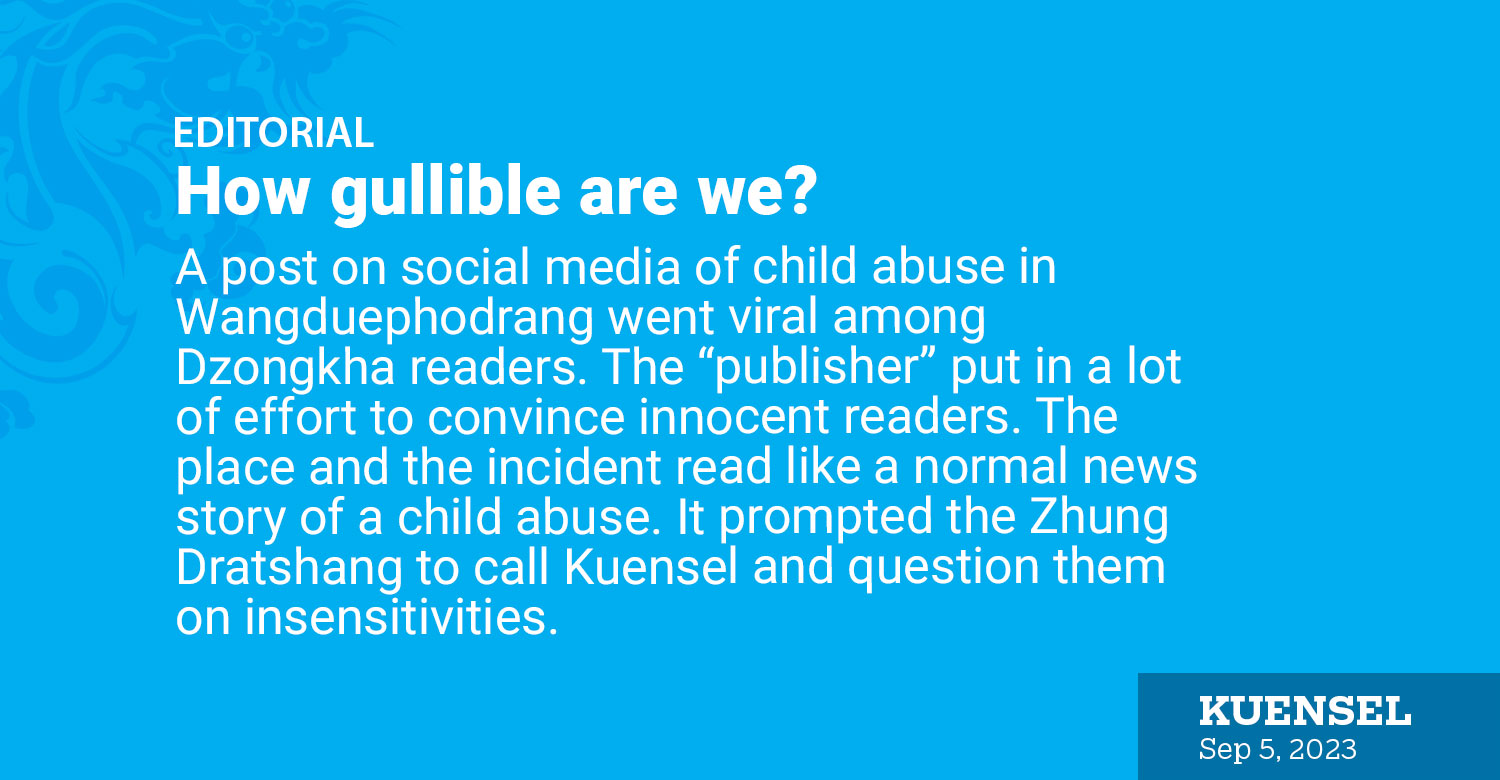A post on social media of child abuse in Wangduephodrang went viral among Dzongkha readers. The “publisher” put in a lot of effort to convince innocent readers. The place and the incident read like a normal news story of a child abuse. It prompted the Zhung Dratshang to call Kuensel and question them on insensitivities.
The publisher was smart to make it look like a Dzongkha Kuensel social media post, using the company’s logo and reporter’s name. It didn’t help anyone. Kuensel issued a clarification and debunked the news as fake. It could have been true, but at least Kuensel didn’t report it. By evening, the news convinced many to the extent that some were questioning Zhung Dratshang’s authority.
This is not an isolated case. We have seen many happen before and can surmise that many more will occur. Social media provides the platform to disseminate false news including those that can tarnish the image of institutions or personalities. Given that a vast majority of our society is not media-literate, the risk is believing in those trying to misinform, mislead or create problems. Bhutanese, many of us, are gullible. There could be repercussions when people are misled or misinformed.
That social media is a boon and a bane is evident from recent developments. Social media platforms provide cheap or free space to share information. But it also comes with the risk of misleading the populace. With the Assembly elections around the corner, social media could play an important role, as is seen today by how political parties are taking advantage of the reach, or if they want, misuse it to spread misinformation.
The problem has become complex. If we are struggling to contain misleading Facebook posts, Artificial Intelligence or AI could disrupt campaigns or elections.
Our election may not matter in a global scene where about 4 billion people are preparing to vote in 2024 from America, Britain, India, Indonesia, or Taiwan. The concern of new developments like AI making it easier to produce disinformation is a universal concern. Social media is powerful even in developed countries. Using generative AI content whether to mislead could sway voters. In our case, we do not have the means or the knowledge to verify information.
The impending risk is the quantity of disinformation AI or social media could generate. The risk for us is greater because we do not have the capacity to verify or hardly bother to do so. A smart aspiring politician or political party could use or misuse AI or social media to woo voters who will never bother to check or crosscheck.
If we are known to have a deep-rooted gossip culture, the internet and social media have taken the gossip and rumour culture to a higher level. Many, particularly in the rural backwaters, depend on social media platforms for information. Without the ability to decipher real or fake information, they would be misled or disinformed. This is a real and new problem we have to deal with as the Assembly elections nears.


